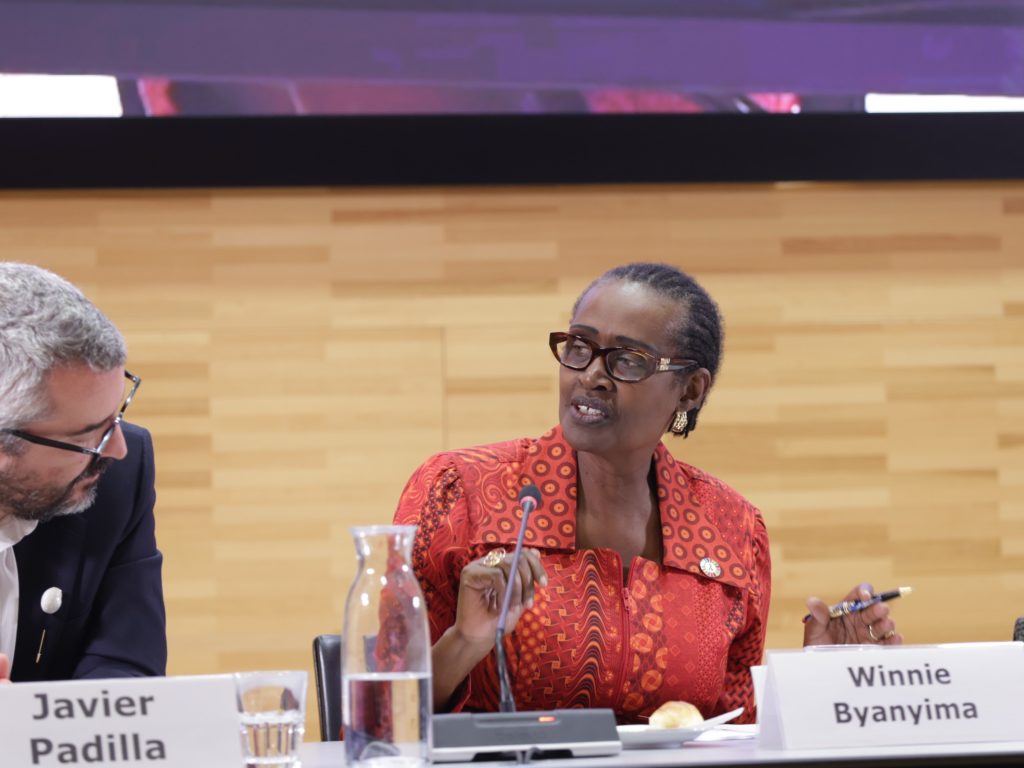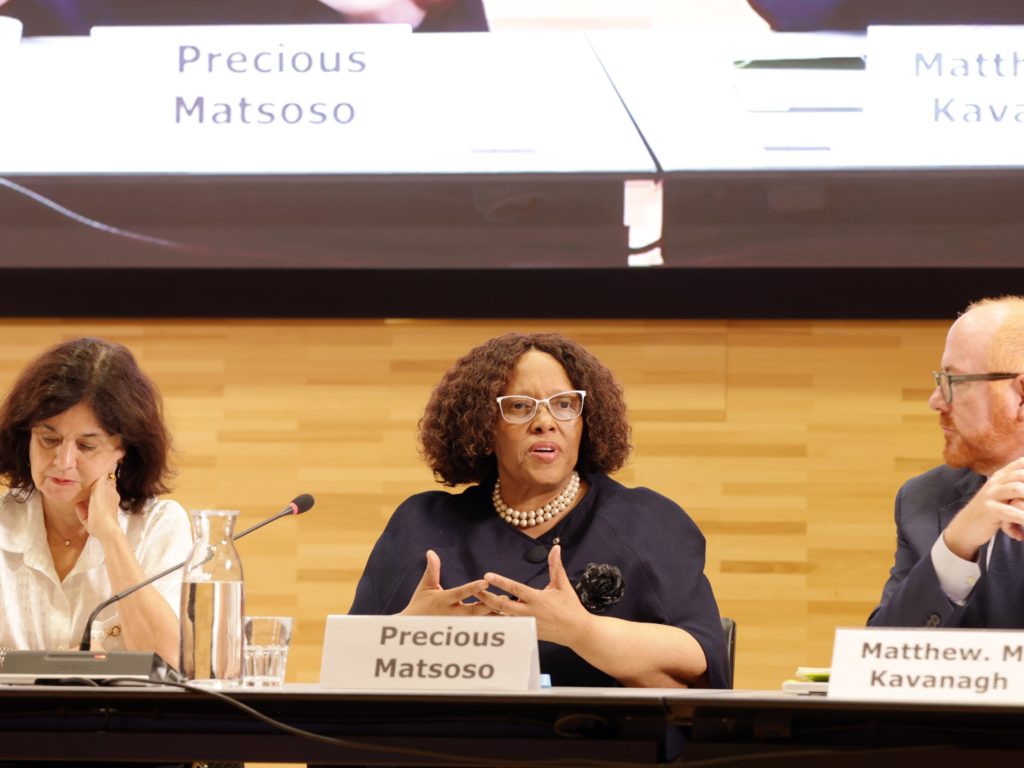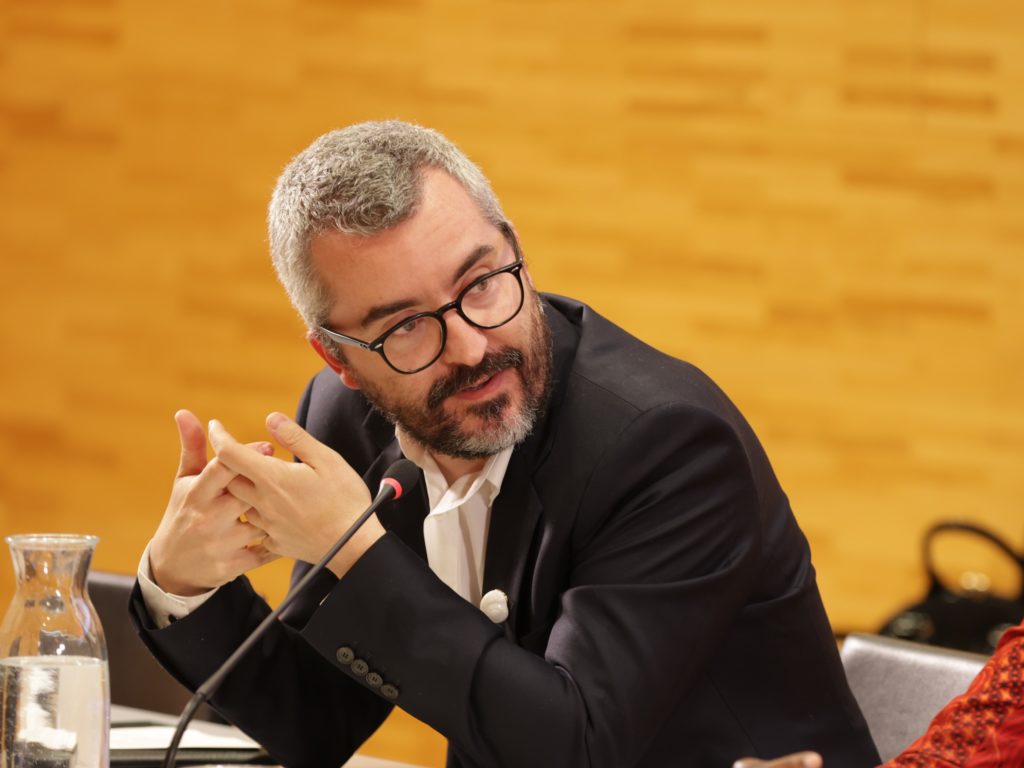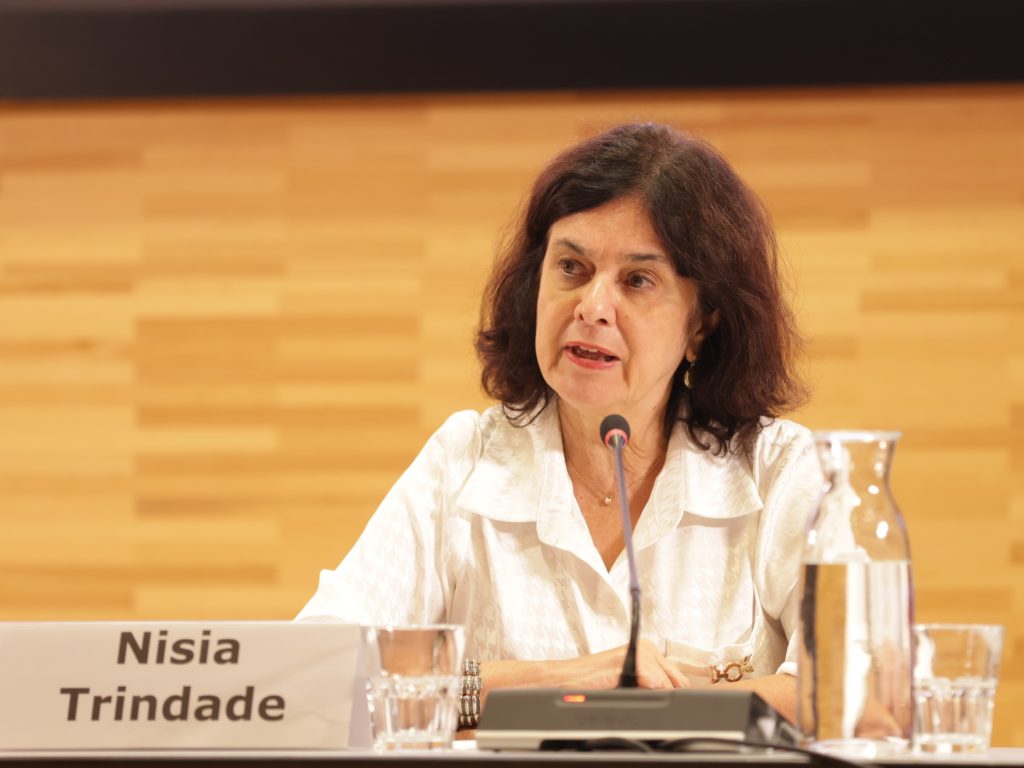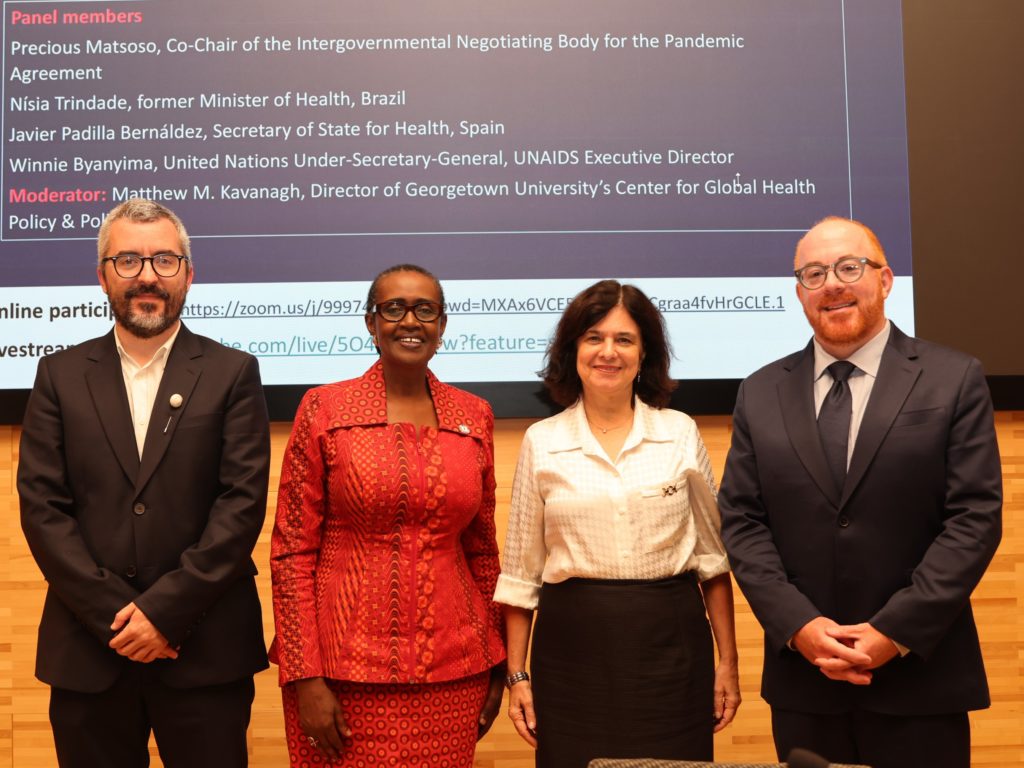Leveraging the Pandemic Agreement to fight inequalities
Members of the Global Council on Inequality, AIDS and Pandemics have called for the newly adopted Pandemic Agreement to deliver where past efforts failed—equitable access to life-saving technologies and services during times of crisis.
Senior South African diplomat Precious Matsoso, the Co-Chair of the Intergovernmental Negotiating Body for the Pandemic Agreement, spoke alongside four Inequality Council members at a panel discussion organized a day after the agreement’s adoption by the 78th World Health Assembly. She stressed that the Pandemic Agreement is “not the end in itself, but the beginning of a process” in addressing inequalities in pandemic preparedness and response, and that even while countries are ratifying the agreement, they can act on its principles and provisions.
“You don’t have to wait that to ensure that there is personal protective equipment for your health workforce, you don’t have to wait to start strengthening your health system,” Matsoso said. “If you want products to be approved, if you want research and development to happen, if you want diversified local protection … you don’t have to wait. You can start having those measures put in place in different countries.”
The panel reflected on decades of experience from the global HIV response, how its lessons were not learned during the rollout of COVID-19 vaccines, and they expressed hope that the Pandemic Agreement will guide faster and more equitable production and distribution of health technologies during the next global pandemic crisis.
“Twelve million people in Africa died waiting for HIV antiretrovirals; they say that 1.3 million lives could have been saved during COVID-19 had the vaccines been shared equitably,” UNAIDS Executive Director and Inequality Council convenor Winnie Byanyima told participants. “This agreement has laid a foundation for building on that experience and ensuring that never again will millions around the world be dying when a life-saving technology is there.”
The agreement commits countries to cooperate in the building and sustaining of “geographically diverse capacities and institutions for research and development, particularly in developing countries”, and to develop and implement policies that will ensure that public funded research and development of pandemic-related health products will be timely and equitably shared during public health emergencies and pandemics.
Former Minister Trindade stated that, in September 2021, 76% of the world’s COVID-19 vaccine supply was concentrated in only 10% of the world’s countries. Brazil and the G20 have launched a Global Coalition on Local and Regional Production, Innovation and Equitable Access that aims to strengthen the capacities of countries to develop and manufacture health technologies for neglected disease, like Dengue, and diseases that impact vulnerable populations, like HIV.
“As technology and the scientific basis of [disease control] have advanced, at the same time, inequalities [in access] have enlarged,” Trindade said. “Diseases that were not seen as neglected became neglected, because it’s not a problem of the disease, it’s a problem of power, economic interest and so on.”
Byanyima noted that innovative technologies for the AIDS response, such as long-acting injectable antiretroviral medicines for HIV prevention and treatment, have been slow to rollout, and global targets for pre-exposure prophylaxis, known as PrEP, will not be reached.
A promising long-acting antiretroviral from Gilead Sciences, lenacapavir, requires only two injections per year to prevent HIV infection. Gilead has signed agreements with six companies to make and sell generic lenacapavir. UNAIDS has called for more manufacturers in the Global South, and especially sub-Saharan Africa, to be granted licences, and for the generic version to be sold in more countries in order to accelerate access.
“There is this amazing technology that Gilead has invented,” Byanyima said, “However, it’s not yet available. And it could take years and years to become available. This is not a way to fight and win against a pandemic.”
Secretary Padilla Bernáldez said that the technology transfer provisions in the Pandemic Agreement could help accelerate access. “The pandemic agreement is going to be the framework that we are going to use when talking about Lenecapavir,” Padilla said. “These words on technology transfer [in the Pandemic Agreement] are maybe not the ideal that we would have chosen, but for sure, they are going to make us able to go further.”
Matthew Kavanagh, Director of Georgetown University’s Center for Global Health Policy & Politics, shared with participants the research findings of the Inequality Council, which has revealed an inequality-pandemic cycle, where inequalities accelerate the spread of disease and create and deepen pandemics, and the impact of pandemics hits the poor and vulnerable the hardest, deepening inequalities.
“We know that from the HIV experience, from the Ebola experience, from the COVID-19 experience, from the Mpox experience, and we will certainly know from whatever the next pandemic is,” Kavanagh said. “Inequality is not just a bad thing in general … inequality creates the conditions through which outbreaks turn into pandemics, and pandemics last for years.”
Some public health experts have criticized WHO Member States for agreeing to language in many key provisions that makes them less binding, and that full consensus was not reached on a key area of pandemic preparedness and response, pathogen access and benefit-sharing (PABS). Negotiations on PABS will continue for a year, and the results included as an annex to the main agreement.
Panel members acknowledged that the agreement could have been stronger, and they called on all countries to ensure that the agreement’s principles of equity and human rights are embraced during implementation of the agreement.
“The Pandemic Agreement is not everything we would want, but it is the beginning of a powerful movement … a sign that global health, despite reports of its death, is far from dead,” Kavanagh said. “We can keep pushing towards something that is equitable, powerful, and improves people’s health.”
